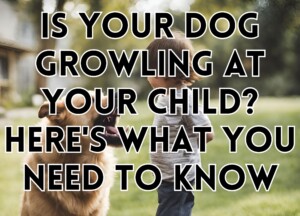
In the world of our canine companions, anxiety is more common than one might think. Just like humans, dogs experience a range of emotions, and anxiety can be a significant one among them. Understanding the signs and causes of this anxiety is not just about improving the quality of their lives, but also about strengthening the bond we share with our furry friends. From pacing and excessive barking to more subtle signs like excessive licking or changes in appetite, the manifestations of anxiety in dogs can vary greatly. Often, these signs are a response to environmental stressors, separation from owners, or even underlying health issues. In this article, we delve into natural remedies that can alleviate your dog’s anxiety, enhance their well-being, and bring peace to your household. We will explore dietary adjustments, the benefits of physical activity, natural supplements, and the importance of a stable routine, all aimed at soothing your anxious dog.

The Role of Diet and Nutrition in Managing Dog Anxiety
I remember when my dog, Bailey, started showing signs of anxiety. At first, I was puzzled about what could be causing his restlessness and whimpering. That’s when I stumbled upon the connection between diet and anxiety in dogs. It turns out, what we feed our furry friends can significantly impact their emotional well-being.
Personal Experience with Dietary Changes: My journey with Bailey led me to explore various dietary adjustments. I introduced omega-3 fatty acids into his diet, found in fish like salmon, which are known for their calming effects. I also discovered that magnesium-rich foods like spinach and pumpkin seeds could help. The change wasn’t overnight, but gradually, I noticed Bailey becoming more relaxed and less prone to anxiety-induced behaviors.
Foods to Avoid: Just as some foods can help, others can exacerbate anxiety. High-sugar foods and those with artificial colors or flavors can lead to hyperactivity and mood swings in dogs. Cutting these out made a noticeable difference in Bailey’s behavior.
Hydration is Key: I also learned that dehydration can contribute to anxiety in dogs. Ensuring Bailey always had access to fresh water, especially after exercise, became a priority.
Consulting a Professional: It’s important to remember that each dog is unique. What worked for Bailey might not work for another dog. Consulting with a veterinarian or a canine nutritionist before making significant changes to your dog’s diet is crucial.
A Balanced Diet for a Balanced Mind: Ultimately, a balanced diet plays a vital role in managing anxiety in dogs. For Bailey, it was a mix of the right nutrients and avoiding certain triggers that led to a happier, more relaxed state.
Dietary changes might seem simple, but they can have a profound impact on your dog’s anxiety levels. In the next section, we’ll explore how physical exercise and mental stimulation can further aid in reducing anxiety in dogs.

Physical Exercise and Mental Stimulation
I recall the days when my dog, Max, used to pace around the house, his anxiety almost palpable. That’s when I learned about the power of physical exercise and mental stimulation in soothing his anxious mind.
Morning Jogs and Evening Strolls: Our daily routine began with morning jogs. I noticed how running alongside me helped Max release his pent-up energy. The physical exertion wasn’t just good for his body, but it also seemed to calm his mind. Evening strolls became a time for him to explore and sniff, engaging his senses and keeping his mind active.
Interactive Playtime: Max loved puzzle toys. These weren’t just toys; they were tools that challenged his mind, provided mental stimulation, and kept anxiety at bay. Every time he solved a puzzle to get his treat, his tail wagged in victory.
Training Sessions as Bonding Time: Training sessions became more than just learning commands; they turned into moments of bonding. Each new trick learned was a boost to Max’s confidence. I found that a confident dog is often a less anxious one.
Socialization and Playdates: Introducing Max to other dogs and scheduling playdates was another breakthrough. Watching him interact and play with his furry friends was a joy. It was not just fun for him, but also an essential part of his social development and anxiety management.
The Transformation: Gradually, the anxious pacing lessened, and the restless nights turned peaceful. The combination of physical and mental exercise made a world of difference for Max. It was a clear message: a tired dog is a happy dog.
Physical exercise and mental stimulation are not just activities; they are essential components of a happy and healthy life for dogs, especially those dealing with anxiety. Next, we’ll explore natural supplements and herbal remedies that can further aid in alleviating anxiety in dogs.

Natural Supplements and Herbal Remedies for Dog Anxiety
When it comes to managing anxiety in dogs, natural supplements and herbal remedies can play a significant role. This was a game-changer for my dog, Luna, who struggled with separation anxiety. Among the various options I explored, one particular product stood out: Relax Rover Buddy Budder for Stress and Anxiety.
Discovering Relax Rover Buddy Budder: Luna was always a bundle of nerves whenever I left the house. I tried various techniques, but it was the introduction of Relax Rover’s Natural Dog Peanut Butter that made a noticeable difference. This 100% natural dog supplement, made in the USA, became a staple in our routine.
Why Relax Rover Buddy Budder Worked for Luna: The combination of its natural ingredients seemed to have a calming effect on her. I would mix a little of the Relax Rover Supplement into her meals, especially on days when I knew I’d be gone for longer periods. The change in her was evident. She became more relaxed and the anxious behaviors reduced significantly.
Other Herbal Remedies: Alongside the Buddy Budder, I also explored other herbal remedies like chamomile and valerian root, known for their calming properties. These, combined with the Buddy Budder, provided a holistic approach to managing Luna’s anxiety.
Consultation Is Key: It’s important to note that every dog is different. What worked for Luna might not work for another dog. I always recommend consulting with a veterinarian before introducing any new supplements to your dog’s diet.
Natural supplements and herbal remedies, particularly products like Relax Rover Buddy Budder, can be effective tools in alleviating anxiety in dogs. They provide a natural way to soothe your pet, ensuring their emotional well-being.

The Power of Routine and Comforting Environment
Creating a stable routine and a comforting environment is often underestimated in its ability to reduce anxiety in dogs. I learned this through my journey with Rusty, a rescue dog who came into my life with a bundle of nervous energy.
Establishing a Routine: Rusty was initially skittish and unpredictable. It was the establishment of a routine that brought a sense of order to his life. Set times for meals, walks, and bedtime helped him understand what to expect each day. This predictability alone eased his anxiety significantly.
Creating a Safe Space: I also dedicated a corner of my living room to Rusty, equipped with his favorite bed and toys. This ‘safe space’ became his haven, a place where he could retreat and feel secure whenever he felt overwhelmed.
The Impact of a Comforting Environment: Incorporating elements like soft music during my absence and using calming scents like lavender in the house also contributed to creating a soothing atmosphere for Rusty. It was these small changes that made our home a sanctuary for him.
Balancing with Supplements: On days when I sensed Rusty’s anxiety creeping up, I would turn to natural supplements like the Relax Rover Buddy Budder, which I had found helpful in managing Luna’s anxiety. Its natural composition was effective in gently easing his stress.
Consistency Leads to Trust: Over time, the combination of a consistent routine and a comforting environment built a foundation of trust and security for Rusty. His transformation was a testament to the power of simple, yet consistent care in managing anxiety in dogs.

Professional Help and When to Seek It for Your Anxious Dog
Dealing with an anxious dog can be challenging, and sometimes the solutions we try at home may not be enough. Recognizing when it’s time to seek professional help is crucial for the well-being of your dog.
Consulting a Veterinarian: If you notice persistent signs of anxiety that don’t improve with natural remedies or changes in environment and routine, it’s essential to consult a veterinarian. They can rule out any underlying medical conditions and provide guidance or medication if needed.
Behavioral Training: In some cases, working with a dog behaviorist or a professional trainer can be beneficial. They specialize in understanding canine behavior and can offer strategies tailored to your dog’s specific needs.
Integrating Professional Advice with Home Care: Combining professional advice with the steps discussed in this article can lead to the best outcomes. Whether it’s adjusting your dog’s diet, incorporating natural supplements like Relax Rover Buddy Budder, or enhancing their environment, each aspect plays a role in managing anxiety.
Questions and Answers
What are the first signs of anxiety in dogs? Common signs include excessive barking, pacing, shaking, and changes in eating habits. It’s important to observe your dog closely and consult a vet if these behaviors persist.
Can a change in routine cause anxiety in dogs? Yes, dogs thrive on routine, and sudden changes can lead to anxiety. Gradually introducing changes and maintaining a consistent schedule can help ease their stress.
Are there specific breeds more prone to anxiety? While any dog can experience anxiety, some breeds are more predisposed due to their genetic makeup and temperament. Breeds like Border Collies, Labrador Retrievers, and German Shepherds are known to be more prone to anxiety.
Is it okay to leave an anxious dog alone at home? Leaving an anxious dog alone can exacerbate their anxiety, especially if they suffer from separation anxiety. Creating a safe space and gradually acclimating them to being alone can help, as can using calming supplements and ensuring they have adequate exercise and mental stimulation.
How can I tell if my dog’s anxiety requires professional help? If your dog’s anxiety is severe, persistent, or leads to destructive behavior, it’s time to seek professional help. A veterinarian can provide guidance and, if necessary, prescribe medication or recommend a behavioral specialist.
As an Amazon Associate we earn from qualifying purchases through some links in our articles.




